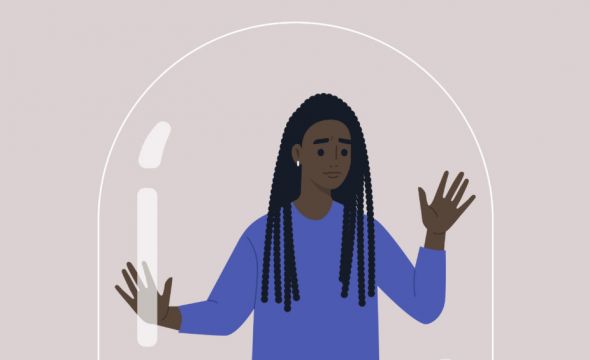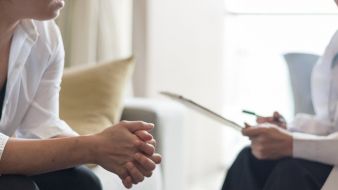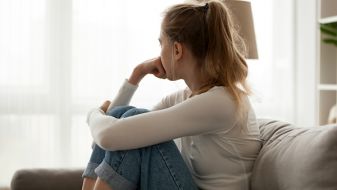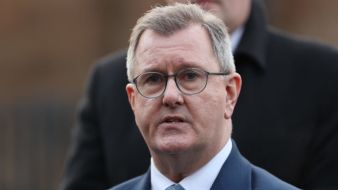The Covid lockdowns have been incredibly tough for people's mental health and the ramifications are likely to be felt for years to comes as things slowly get back to normal.
For those who are part of the black community in Ireland, speaking out about mental health issues has been incredibly difficult. Toluwani Akaehomen is a leadership, learning and inclusion consultant in Ireland, as well as the chair of the steering committee of the Kilkenny African community.
Speaking to BreakingNews.ie, she says: “From a cultural perspective, issues surrounding mental health and more to the point mental illness, are seen as a stigma in most African communities.”
“People do not like to discuss it and I think there is a real lack of education around it as well,” she says.
Because mental health issues are not always apparent, unlike a physical illness, people are less aware and are more reluctant to seek help.
"If someone does look for support, they often feel they cannot tell family members and have to go it alone. This puts a lot of pressure on them and can impact on their mental health even more.
You might even find people not marrying into a family because of the fear that mental illness is genetic.
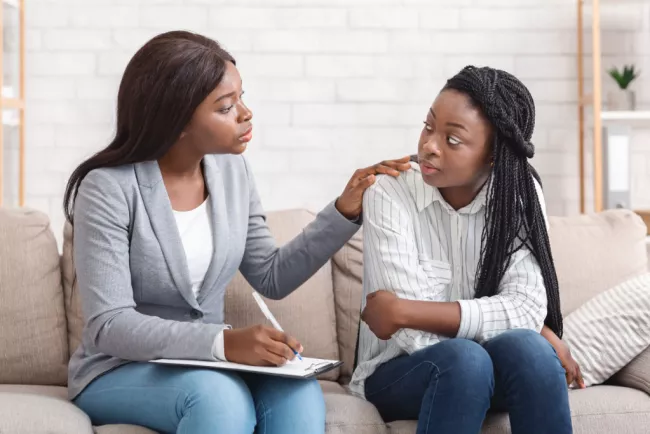
Breaking down stereotypes
Parts of the community also have to deal with labels they are given by the wider society, especially if they have lived in Direct Provision.
As Ms Akaehomen says: “I know people who were in Direct Provision for 10 years and the psychological impact of that is huge. When you leave, people say you are sponging off the State. Trying to break down those stereotypes can have a big impact on your mental health.”
She knows a woman in Direct Provision who tried to commit suicide three times. “She told me that she never met her therapist and only spoke on the phone,” Akaehomen says.
While the woman was prescribed medication “there was no dialogue or trying to understand where she is coming from.”
While there are issues within the community, wider society can also have a bearing on it as well.
With the impact of lockdown and the protests following the killing of George Floyd, Ejiro Ogbevoen, a psychotherapist with 10 years experience, felt compelled to do something for her community.
She started Black Therapists Ireland around October 2020 because "people were not able to find therapists of colour, and most of the time they had to look to the UK."
A young girl came to her and “burst into tears” because she was struggling to find a black therapist for years.
When you see someone who looks like you and comes from a similar background, there is a lot that goes unsaid.
She decided to set up a directory for those looking for black therapists. When a black person goes to see a white therapist it is harder for them understand the discrimination they have faced or their cultural background.
Thankfully, there are now 10 therapists who are part of the network, and it has become a really important lifeline for those seeking help.

One of the issues that has arisen is that “A lot of people come to therapy at a later stage, and really they could have come much earlier. They wait until it gets really serious,” she says.
The stigma around mental health is part of it, but as Ms Ogbevoen says religion also plays a big role.
“There is this perception that if you are a good Christian you should not be suffering from mental health issues. So, when you have issues, you feel you cannot talk to people about it.
“The people closest to you who are the ones you cannot tell you have a problem.”
Migrant community
While educating people about mental health in the community is important, the Government also needs to do more to reach out to minority communities, according to Ms Ogbevoen.
“I don’t know how much the Government is looking at the migrant community when it comes to mental health. At the moment all we have is just mental health in a broader sense.”
She says they overlook minority communities and “they have to speak to them in a language they understand.”
As well as Black Therapists Ireland, there are other organisations that have sprung up as a way of supporting black people in Ireland.
Diane Ihirwe is a co-founder of the Rooted in Africa in Ireland Network (RIAIN) which she says is “a space for anyone who can trace their roots to Africa but is living in Ireland.”
It was founded in 2019 after a 16-year-old girl, Mia O'Neill committed suicide after being subjected to a torrent of racist abuse for six years.
Her mother said at the time, she was self-harming when she was in sixth class.
As Ms Ihirwe says: “Who we are and how mental health comes into it is that we look at the effects of racism. It brings on stress, anxiety, depression, PTSD and self-harm."
It is also something that has been studied as well, according to the Irish Network Against Racism's 2019 report, 51 per cent of people of African descent in Ireland report facing racism on a daily basis.
Racism happens and does not just go away. Racism does kill, and it has killed in Ireland.
Due to lockdowns, she says many people of African descent have been cut off from their families or support networks. With this in mind, they have recently launched a campaign called Black Mental Health Matters which aims to raise awareness within the community as well as outside it.
LAUNCH OF BLACK MENTAL HEALTH MATTERS IN IRELAND, SATURDAY, MAY 15, 2021🖤🤎
Black Mental Health always mattered but has not always received the attention it deserves in Ireland, especially during the past year & #COVID19
The time is NOW for us to advocate for our community. 1/ pic.twitter.com/ntklqzA1em— Roots in Africa-Ireland Network (@riainetwork) May 14, 2021
“There is a big gap between people from my generation and older ones. We cannot really talk to our parents about it, because they don’t really have the resources to help or even understand what we’re going through,” Ms Ihirwe says.
The campaign is about bridging that gap and educating older people about mental health issues, but also encouraging younger people to seek out the help they need.
The contact information for a range of mental health supports is available at https://www.mentalhealthireland.ie/get-support/.
In the case of an emergency, or if you or someone you know is at risk of suicide or self-harm, dial 999/112.
